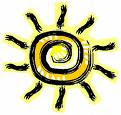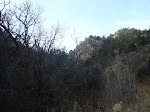Radical Traditions
Strictly speaking, he was a radical. From the protest he led against the state of intellectualism at Harvard to the day he refused to administer the Lord's supper, which led to his resignation from the ministry in 1832. He was born into the ministry. His father was the pastor of the Second Church in Boston Massachusetts until the day of his death in 1811. He began to exhibit a radical demeanor when his mother was left with a growing family and desperate financial circumstances. He and his three brothers went through college, each helping the next when ready. This fourteen year old boy entered Harvard College in 1817 and graduated in 1821. He taught at a finishing school for young ladies in Boston and was ordained as assistant pastor of the Second Church, where his father had preached. He traveled extensively throughout Europe acquiring wisdom and knowledge by studying the great works of Landor, Coleridge, Wordsworth and Carlyle.
After retirement, he began to write essays on every subject imaginable. He then went on to address the social issues concerning religion and the ministry to large crowds of people who listened receptively to what he had to say. He spent the rest of his life lecturing chiefly on spiritual and philosophical subjects all over the country. His fame came largely from his work “Nature” which contemplated the fundamental influence of nature on the life of mankind. Second was his address on “The American Scholar” which was eagerly listened to by the Harvard Phi Beta Kappa Society in 1837. His criticism of the ministry and religion was announced as heresy by the clergy at the time, though considered harmless by today's standards. Not only will the reader find pronouncements of the American past but dicta which are as valid in our century as they were in his. The man to win the cultural independence for America, the first philosopher of the American spirit, the rebel of the 1800's is known today as Ralph Waldo Emerson.
Not only were literature, philosophy and poetry affected by Ralph Waldo Emerson, but religion, individuality and the relation between the two. We can see the effects of Emerson on individuals and groups trying to come out and be understood. Be it African Americans in the Civil Rights movement or homosexuals and lesbians in the gay rights movement. It is trying to stand out as an individual, contrary to the belief of the rightly perceived society. It was a rebellion against the European doctrines and philosophies, and is no less so today. It still speaks out against formalism and tradition in our culture. It is finding a center in not only God, but yourself. In Emersons words, it is “Self-Reliance- to believe your own thought,” to seek and love freedom, truth and knowledge. THIS IS THE REST OF THE STORY.
Friday, September 18, 2009
Subscribe to:
Post Comments (Atom)



















No comments:
Post a Comment